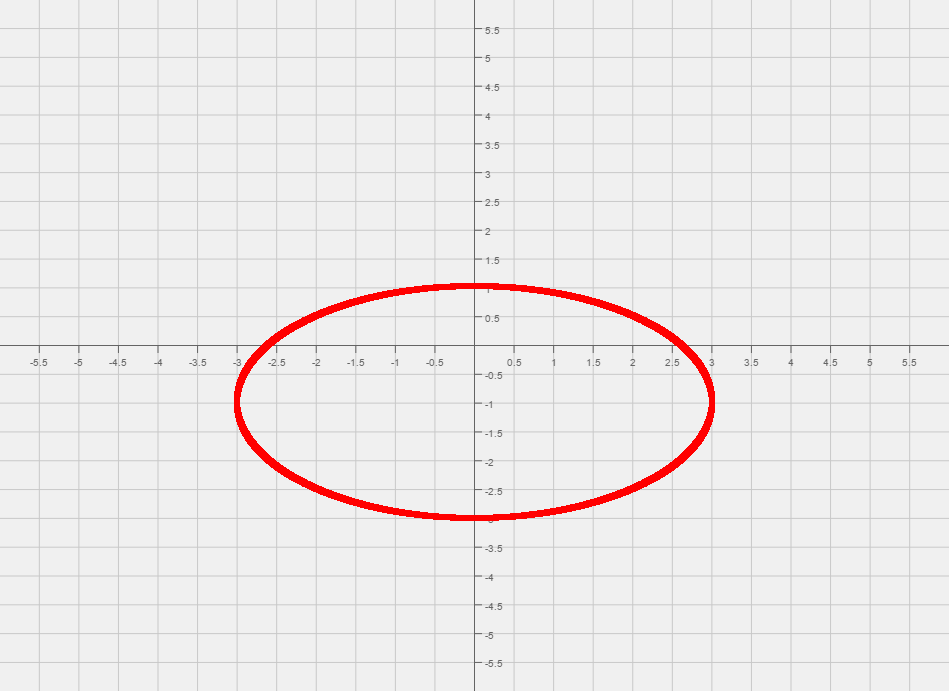Difference between revisions of "008A Sample Final A, Question 6"
Jump to navigation
Jump to search
| Line 10: | Line 10: | ||
|Answer: | |Answer: | ||
|- | |- | ||
| − | |1) Since both x and y are squared it must be a hyperbola or an ellipse. | + | |1) Since both x and y are squared it must be a hyperbola or an ellipse. We can conclude that the graph is an ellipse since both <math>x^2</math> and <math>y^2</math> have the same sign, positive. |
|- | |- | ||
|2) Since the coefficient of the <math>x^2</math> term is smaller, when we divide both sides by 36 the X-axis will be the major axis. | |2) Since the coefficient of the <math>x^2</math> term is smaller, when we divide both sides by 36 the X-axis will be the major axis. | ||
Revision as of 11:21, 23 May 2015
Question: Sketch . Give coordinates of each of the 4 vertices of the graph.
| Foundations |
|---|
| 1) What type of function is this? |
| 2) What can you say about the orientation of the graph? |
| Answer: |
| 1) Since both x and y are squared it must be a hyperbola or an ellipse. We can conclude that the graph is an ellipse since both and have the same sign, positive. |
| 2) Since the coefficient of the term is smaller, when we divide both sides by 36 the X-axis will be the major axis. |
Solution:
| Step 1: |
|---|
| We start by dividing both sides by 36. This yields . |
| Step 2: |
|---|
| Now that we have the equation that looks like an ellipse, we can read off the center of the ellipse, (0, -1). |
| From the center mark the two points that are 3 units left, and three units right of the center. |
| Then mark the two points that are 2 units up, and two units down from the center. |
| Final Answer: |
|---|

|



